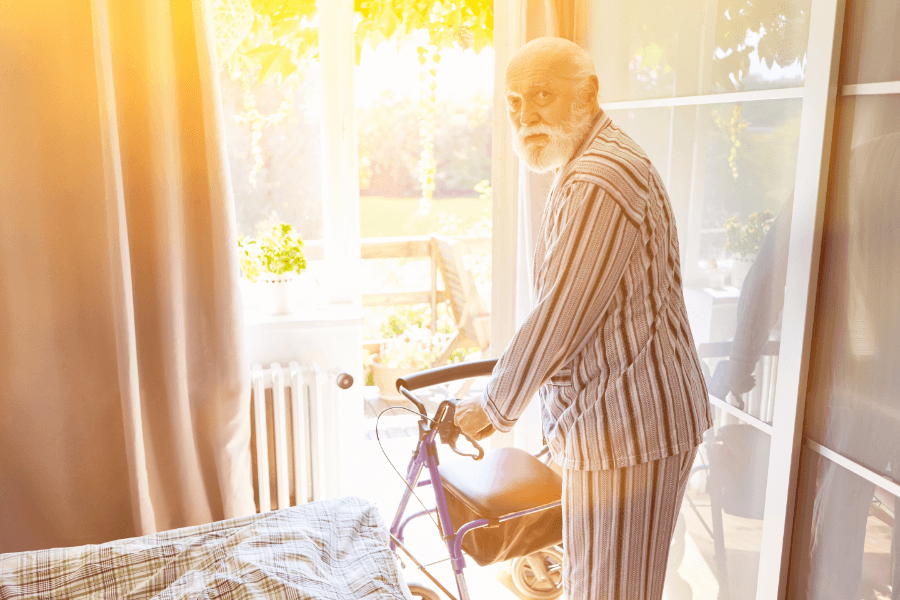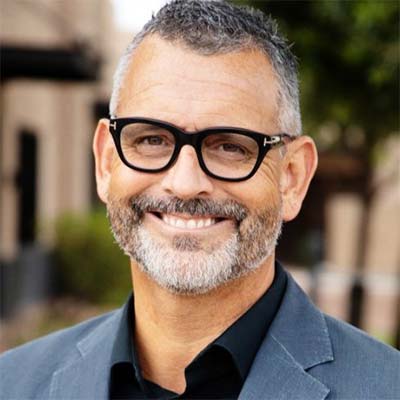
Tips to Transition Home after Neurological Rehab in Arizona
Going home after suffering a neurological injury and getting treatment at a neurological rehab in Arizona can become challenging. Families need to consider if they need to make changes in the home or other daily living adjustments. At Santé, we want our patients to be as prepared as possible to continue recovering and participate in Arizona outpatient therapy if needed.
What to Expect When Returning Home from Neurological Rehab in Arizona
After suffering a stroke or other neurological injury, life at home will be different than it was before. You may experience changes connected to your injury that impact how your brain operates and how you interact with your family and environment.
Changes in Personality and Behaviors
Impulsive behaviors may need to be addressed once you get home. These can be temporary behavior changes or may last for some time. [1] Sometimes, verbal and visual cueing is needed to help a patient with impulse control to slow down.
Forgetting Where Things Are
Forgetting where things are located at home can also be expected after a neurological injury—changes to the brain impact memory in many different ways, including remembering where things are.
Needing Help Moving Around
Many people who have suffered a stroke or other neurological injury may need help moving around. Mobility may be limited, resulting in using a cane, walker, or other aide.
Being Unable to Make Choices
Cognitive problems such as difficulty making decisions are expected in stroke victims and among those with other brain injuries. [2] Since decision-making involves many different processes, the action may be impaired when there is trauma to the brain. Something as simple as deciding what to eat for dinner can become a chore. Staying patient is important when dealing with this effect.
Make Home Modifications
Several home modifications may be needed once you arrive home from neurological rehab in Arizona. [3] Bathrooms may need to be equipped with safety bars and other pieces of equipment to help with balance. Changes may need to be made in the bedroom to make the bed more accessible, as well as closets or drawers.
Making the Transition Home Easier
As your loved one eases into life at home, consider taking these actions to smooth the transition:
Create a Daily Schedule and Routine
Provide your loved one with a daily routine so that there is less stress and anxiety about what the day will hold. This can help make everyday activities more accessible to accomplish.
Focus on Healthy Living
Eating well and getting enough sleep are essential for people with a brain injury. The brain and the body need proper nutrients to heal, so eating healthy foods can help maintain energy and focus on recovery.
Getting enough rest also makes it easier to focus and regain skills that may have been lost due to the neurological injury.
Set Realistic Goals
Many patients may feel as though regaining certain activities is impossible. By setting realistic goals, your loved one will begin to regain the confidence they need. As each small goal is achieved, you can help them develop new ones to help them continue on their recovery journey.
Be Patient
Encourage your loved ones to be patient with themselves. Although new challenges exist, frustration and stress will only worsen the situation. Please encourage them to breathe and take a timeout when things become overwhelming.
Practicing positive thinking may also be beneficial. Writing or repeating positive thoughts can comfort patients when they return home. Some patients may also benefit from deep breathing techniques to avoid becoming overwhelmed.
Available Home Health Services in Arizona from Santé
Home health services can also make the transition home more manageable for those with a neurological injury. Home health services give patients the help they need as they adjust to home life and work on getting better.
Santé offers various home health services to help patients with neurological injuries once they get home.
Occupational Therapy
Occupational therapy will help patients with daily activities, improve their ability to care for themselves, and restore independence at home.
Speech Therapy
Patients can improve their ability to speak and swallow and improve cognitive deficiencies through speech therapy services.
Physical Therapy
Patients improve their mobility, strength, and endurance through physical therapy sessions.
Skilled Nursing Care at Home
Skilled nursing care to help with medication management is also available, as well as home health aides who can assist with light housekeeping and other duties. These home health services can make the transition home more manageable for patients and families.
Looking for Home Health and Outpatient Therapy in Arizona?
If you are looking for home health services and outpatient therapy in Arizona, Santé and Aleca are here to help. Our teams are experienced and licensed to provide your loved one with the services they need. Call us today to learn more about our programs.
Sources:
[2] https://strokefoundation.org.au/media-centre/stroke-stories/difficulty-with-making-decisions
[3] https://www.stroke.org/en/life-after-stroke/recovery/home-modifications

Dan is Vice President, Marketing of the Alumus family of companies. A Seattle native, he earned his BA in Humanities and Political Science at Evergreen State College. He started his career as a newspaper columnist, eventually transitioning into marketing and tech writing for Microsoft and several other startups. He later launched a successful creative agency focused on branding, digital marketing, and content production in Los Angeles, where he worked for several nursing and behavioral health clients, eventually becoming the National Marketing Director for one of them.
He has taught Vipassana mindfulness meditation and MBSR and spends whatever free time he has with his son snowboarding, hiking, and camping in the mountains.



